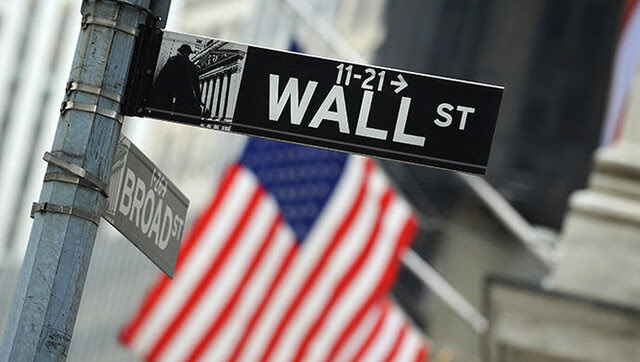Tokyo: Shares declined in Europe and Asia on Thursday after a broad retreat on Wall Street triggered by worries over the impact of persistent high inflation on corporate profits and consumer spending. US futures were lower, while oil prices advanced. Germany’s DAX lost two per cent to 13,731.64 and the CAC 40 in Paris declined 1.9 per cent to 6,234.78. Britain’s FTSE 100 shed 1.7 per cent to 3,537.99. The future for the S&P 500 was 1 per cent lower while the future for the Dow Jones Industrial Average sank 0.9 per cent. The Dow industrials sank more than 1,100 points, or 3.6 per cent on Wednesday, and the S&P 500 had its biggest drop in nearly two years, shedding four per cent. That was its steepest decline since June 2020. The tech-heavy Nasdaq fell 4.7per cent. The benchmark index is now down more than 18 per cent from the record high it reached at the beginning of the year. That’s just shy of the 20 per cent decline that’s considered a bear market. “The sentiment in the market is highly negative as traders and investors are largely concerned about an economic downturn and soaring inflation,” Naeem Aslam of Avatrade said in a commentary. The Federal Reserve is trying to temper the impact from the highest inflation in four decades by raising interest rates. Many other central banks are on a similar track. But the Bank of Japan has stuck to its low interest rate policy and the gap between those benchmark rates of the world’s largest and third-largest economies has pushed the dollar’s value up against the Japanese yen. Japan reported a trade deficit for April as its imports ballooned 28 per cent. The shift reflects surging energy costs amid the war in Ukraine and a weakening of the yen against the US dollar. Japan’s exports grew to 8.076 trillion yen ($63 billion) last month, up 12.5 per cent from the previous year, according to Ministry of Finance data released Thursday. Imports totaled 8.915 trillion yen ($70 billion) in April, up from 6.953 trillion yen in April 2021, and the highest since comparable numbers began to be taken in 1979. The Nikkei 225 in Tokyo lost 1.9 per cent to 26,402.84 and the Hang Seng in Hong Kong dropped 2.5 per cent to 20,120.60. In South Korea, the Kospi shed 1.3 per cent to 2,592.34, while Australia’s S&P/ASX 200 gave up 1.7 per cent to 7,064.50. The Shanghai Composite index reversed earlier losses, gaining 0.4 per cent to 3.096.96. On Wednesday, retailer Target lost a quarter of its value after reporting earnings that fell far short of analysts’ forecasts. Inflation, especially for shipping costs, dragged its operating margin for the first quarter to 5.3 per cent. It had been expecting 8 per cent or higher. The company warned that its costs for freight this year would be $1 billion higher than it estimated just three months ago. The report comes a day after Walmart said its profit took a hit from higher costs. The nation’s largest retailer fell 6.8 per cent, adding to its losses from Tuesday. Target and Walmart each provided anecdotal evidence that inflation is weighing on consumers, saying they held back on purchasing big-ticket items and changed from national brands to less expensive store brands. The weak reports stoked concerns that stubbornly rising inflation is putting a tighter squeeze on a wide range of businesses and could cut deeper into their profits. Other big retailers also have racked up hefty losses. The data are not entirely consistent. On Tuesday, the market cheered an encouraging report from the Commerce Department that showed retail sales rose in April, driven by higher sales of cars, electronics, and more spending at restaurants. Investors worry the Fed could trigger a recession if it raises interest rates too high or too quickly. Worries persist about global growth as Russia’s invasion of Ukraine puts even more pressure on prices for oil and food while lockdowns in China to stem COVID-19 cases worsens supply chain problems. In other trading, benchmark US crude oil rose 56 cents to $110.15 per barrel in electronic trading on the New York Mercantile Exchange. It dropped $2.81 to $109.59 on Wednesday. Brent crude, the basis for pricing for international trading, climbed $1.19 to $110.30 per barrel. The dollar fell to 128.14 Japanese yen from 128.20 yen late Wednesday. The euro strengthened to $1.0481 from $1.0464. Read all the Latest News , Trending News , Cricket News , Bollywood News , India News and Entertainment News here. Follow us on Facebook, Twitter and Instagram.
The sentiment in the market is highly negative as traders and investors are largely concerned about an economic downturn and soaring inflation, said an expert
Advertisement
End of Article


)

)
)
)
)
)
)
)
)



